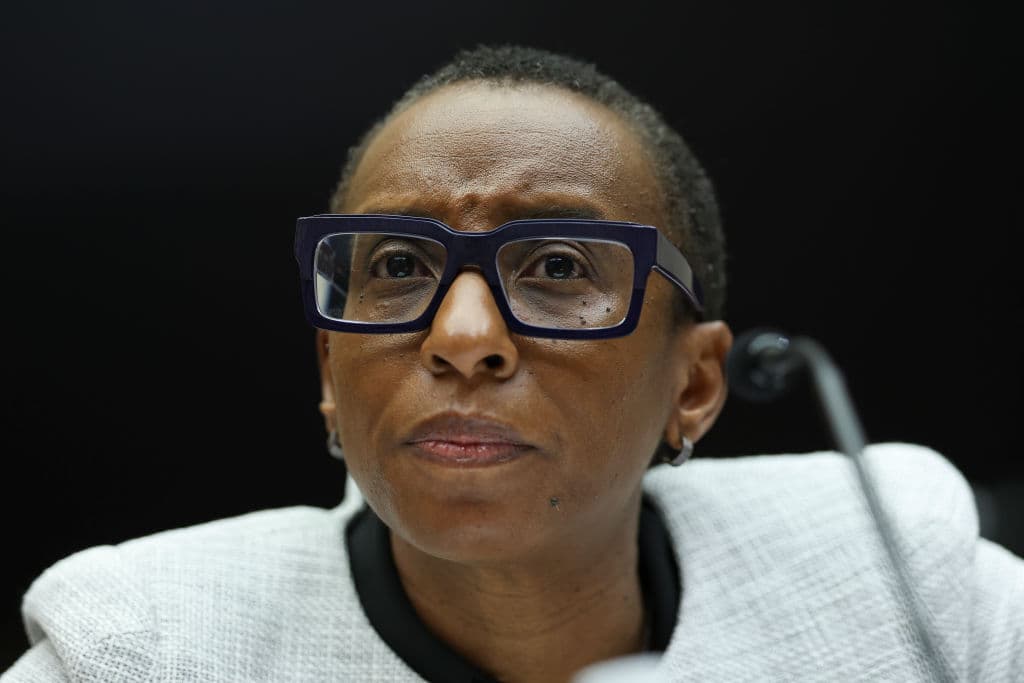Claudine Gay’s Double Standard on Freedom of Speech Renders Her Unfit To Lead Harvard
Yet she is only part of a deeper problem at Harvard in particular and higher education in general.

When Claudine Gay was appointed president of Harvard, many of us expressed concern about her dismal record on civil liberties. As dean of the faculty, she was responsible for the firing — she called it non-rehiring — of Professor Ronald Sullivan, who had served, along with his wife as co-dean (it used to be called “master”) of Winthrop House, until he agreed to represent disgraced mogul Harvey Weinstein.
Several students then said that Mr. Sullivan’s role as co-dean made them feel unsafe. Despite the absurdity of the claim — Mr. Sullivan had previously represented a double murderer without complaint — Ms. Gay agreed that the students had a right to feel safe and decided not to reappoint Mr. Sullivan and his wife.
Ms. Gay said that he had failed to give a satisfactory explanation for his one-month-long representation of an accused rapist — as if representing an accused rapist requires any explanation other than the Sixth Amendment right to counsel. She also said he had failed in his “pastoral“ role in making the students feel safe.
As dean she was also a supporter of the Diversity, Equity, and Inclusion bureaucracies that are at the forefront of enforcing rules against so-called micro-aggressions and other violations of free expression. Students and faculty walked on eggshells to avoid offending protected groups, including Black and gay and transgender students.
It was no surprise to me that Harvard was ranked dead last among major universities in supporting free speech. It repeatedly placed concern for the feelings of certain students above concern for freedom of expression. The situation became so bad that a group of faculty banded together to establish the Harvard Council on Academic Freedom, which I joined.
Ms. Gay was not part of that effort to protect free speech. To the contrary, her appointment as president was an important stimulus to creating a group dedicated to the defense of free speech.
Then came the barbarisms of October 7, Israel’s response, the proliferation of antisemitism, Ms. Gay’s disastrous Congressional testimony, and the near-universal criticism of it. Suddenly Gay discovered the First Amendment and freedom of speech.
Indeed, she became its champion, when it involved hate speech against Jews and their nation-state. Even macro-aggressions against Jews — like calls for the genocide of Jews— became a matter of “context.” In the past even the most trivial microaggressions did not require context. The Diversity, Equity, and Inclusion bureaucracy saw to that.
It was this combination of lack of concern for free speech when it was directed against protected minorities and a sudden concern for free speech when directed against Jews that manifests a discriminatory double standard that angered so many students and alumni.
The time has now come for her to step down. She has failed as a protector of students, as an education leader and as a spokeswoman for Harvard. She has lost the faith of many alumni. She is the wrong person, at the wrong time, in the wrong job.
Yet she is only part of a deeper problem at Harvard in particular and higher education in general. The deeper problem is the systemic emphasis on race, gender, sexual preference and identity politics and education. This emphasis is manifested by the Diversity, Equity, and Inclusion bureaucracy, the proliferation of special identity departments and programs, as well as race-based affirmative action, which persists despite the Supreme Court decision outlawing it.
President Gay is the personification of these problems. Indeed her appointment as president cannot be explained except by reference to these developments. She was appointed because she symbolized Diversity, Equity, and Inclusion. Now she symbolizes its failure. She must go if higher education is to be saved from the extremists who now dominate it.
Several hundred Harvard professors have now come to Ms. Gay’s defense, arguing that the decision whether to fire her should not be based on pressure from alumni or politicians. Yet they have not addressed the compelling substantive reasons behind the widespread call for her termination.
Alumni and student views have always been taken into account as part of Harvard’s decision-making processes. These views should be debated on their merits. In my view, the merits strongly favor the resignation of Ms. Gay because of what she has done and not done in imposing a double standard on Harvard’s actions.

